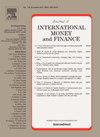不同财政制度下的货币政策意外冲击:欧元区专家小组 分析
IF 3.3
2区 经济学
Q2 BUSINESS, FINANCE
引用次数: 0
摘要
我们使用19个欧元区国家2001年第四季度至2021年第四季度的季度数据,研究了意外冲击对不同财政状况下实际产出和价格水平的影响。采用局部预测方法,我们发现货币冲击的影响取决于每个国家的财政状况。具体来说,虽然高债务放大了货币政策对产出的收缩效应,但财政政策的“李嘉图”性质在价格反应中起着关键作用。值得注意的是,在高债务和低可持续性的体制中,我们观察到“财政通胀”,即货币紧缩提高了价格,而不是遏制价格。与价格水平的财政理论一致,当代理人预期财政调整不足以抵消债务负担时,就会发生这种情况,从而产生通货膨胀压力。我们的研究引入了一种新颖的方法,即在时变框架内整合Bohn的财政反应函数,并分析欧元区财政立场与货币冲击之间的相互作用。这些发现具有重要的政策含义,表明货币当局在实施政策措施时应考虑财政状况。本文章由计算机程序翻译,如有差异,请以英文原文为准。
Monetary policy surprise shocks under different fiscal regimes: A panel analysis of the Euro Area
We examine the impact of surprise shocks on real output and price levels, conditioned on different fiscal stances, using quarterly data from 2001Q4 to 2021Q4 for 19 Euro Area countries. Employing local projection methods, we find that the influence of monetary shocks depends on each country’s fiscal position. Specifically, while high debt amplifies monetary policy’s contractionary effect on output, the “Ricardian" nature of fiscal policy plays a pivotal role in price responses. Notably, in the high-debt and low-sustainability regime, we observe “fiscal inflation" where monetary tightening raises prices instead of containing them. Consistent with the Fiscal Theory of Price Level, this occurs when agents anticipate insufficient fiscal adjustments to offset the debt burden, creating inflationary pressures. Our study introduces a novel approach by integrating Bohn’s fiscal reaction function within a time-varying framework and analyzing interactions between fiscal stances and monetary shocks in the Euro Area. These findings carry significant policy implications, suggesting monetary authorities should consider fiscal conditions when implementing policy measures.
求助全文
通过发布文献求助,成功后即可免费获取论文全文。
去求助
来源期刊

Journal of International Money and Finance
BUSINESS, FINANCE-
CiteScore
4.20
自引率
4.00%
发文量
141
期刊介绍:
Since its launch in 1982, Journal of International Money and Finance has built up a solid reputation as a high quality scholarly journal devoted to theoretical and empirical research in the fields of international monetary economics, international finance, and the rapidly developing overlap area between the two. Researchers in these areas, and financial market professionals too, pay attention to the articles that the journal publishes. Authors published in the journal are in the forefront of scholarly research on exchange rate behaviour, foreign exchange options, international capital markets, international monetary and fiscal policy, international transmission and related questions.
 求助内容:
求助内容: 应助结果提醒方式:
应助结果提醒方式:


